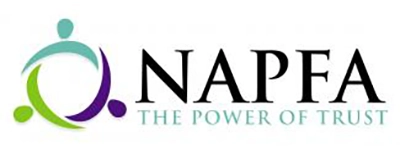Conflicts of Interest
Do you trust your financial advisor? A recent survey of America’s most trusted professions put stock brokers at #16 out of 20 (with members of Congress at #20/20).[1]
Conflicts of interest are part of every financial relationship. Certified Financial Planner® professionals are fiduciaries and required to disclose and mitigate conflicts of interest with clients and always put the client’s best interest first.
What does “Fiduciary” mean?
Legally required to put the client’s best interests first, AT ALL TIMES.
Winged Wealth believes that you can’t have trust in your financial advisor unless the topic of conflicts of interest is open, transparent, and revisited whenever a conflict could be a factor.
The following are examples of conflicts of interest in the financial services industry. Many do not apply to Winged Wealth, but we believe you should consider these important factors when choosing any financial product or service.
The most common. Examples include selling and advising on the same product, such as insurance policies or stocks. Winged Wealth sells advice, not products. We hate overpaying for commoditized products, so we’ll help you avoid such traps.
Very common. Examples include a stock broker or financial advisor frequently buying and selling in your account to accrue trading commissions. Winged Wealth does not sell products or accept any commissions. Full stop.
Very common. If an advisor receives a commission or bonus for selling house-brand or other affiliated investments, you may not know unless you ask. It may be difficult to ascertain how your interests came first. Winged Wealth does not sell products. You are the only person that pays us. Proprietary products may also “trap” you into an investment you later want to sell because you may face transfer fees and taxation.
A financial advisor typically can’t directly manage a 401(k) or the TSP for the client and therefore can’t traditionally charge an AUM (assets under management) fee on those funds. An advisor has an incentive to get clients to move money out of the TSP in order to bill on it. Winged Wealth acknowledges this conflict of interest and typically advises clients to keep funds in the TSP, but will be 100% transparent on any related recommendations.
If a client decides to pay off debt, such as a house, it reduces the client’s investable assets. A financial advisor often bills on AUM and therefore receives less compensation. Winged Wealth will always be 100% transparent about recommendations and conflicts of interest.
Billing on AUM, (e.g. 1% on the first $1M of investable assets) is common practice. There is incentive alignment—your advisor earns more when your portfolio grows. But this arrangement could incentivize an advisor to take outsized risk among other problems. Winged Wealth will always be upfront about its conflicts of interest and mitigations.
If you work on an hourly basis with a financial advisor, the advisor has an incentive to overshoot when estimating a project’s scope. Winged Wealth will act in its fiduciary capacity to put your interests first and be clear about this conflict of interest.
An advisor charging an ongoing subscription has an incentive to do as little work as possible. Winged Wealth cannot act in your best interest and skimp on the services we provide. If you are not receiving value far beyond what you pay for, we will help you find a better relationship.
Similar to retainer/subscription billing, we will be very clear about what we provide before entering into a service agreement with you. We want you to be 100% confident in the service we provide.
Conflicts of Interest are unavoidable, but a fiduciary financial advisor should not be shy about addressing them with you on an ongoing basis.





